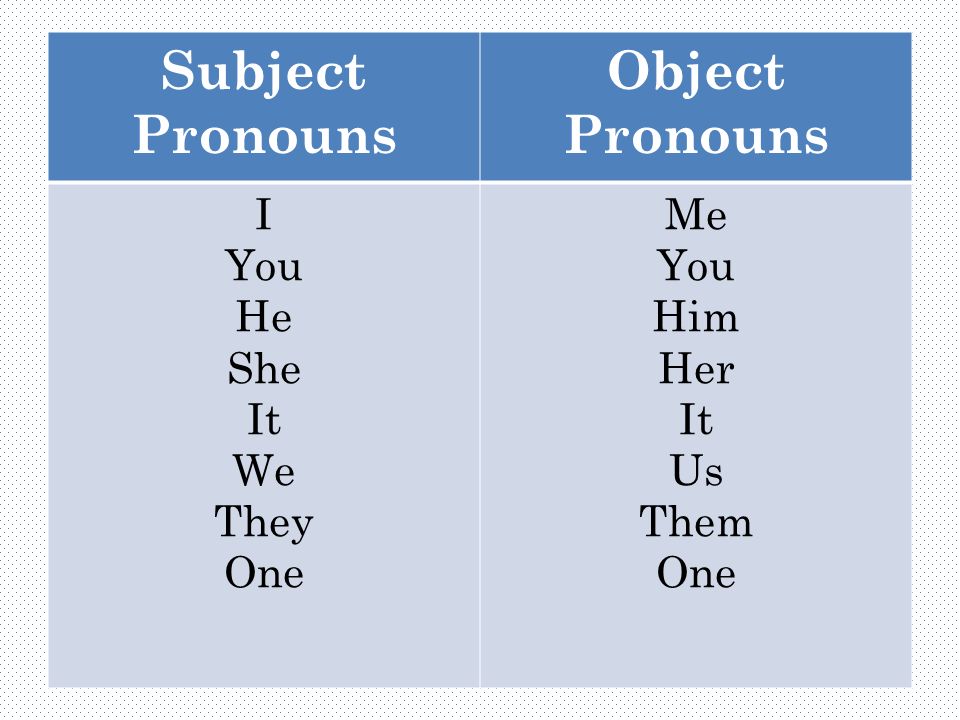Personal pronouns are used in place of nouns. We often use them to refer back to people and things that we have already identified. Personal pronouns may refer to objects, animals, or people.



- This is Jane, she is a teacher.
- We like her classes.
- She is funny.
Personal pronouns may take on various forms depending on:
– number: singular (I, you, he, she, it), plural (we, you, they);
– person: 1st (I, we), 2nd (you) and 3rd (he, she, it, they);
– case: subject (e.g. I, we) and object (e.g. me, us);
– gender: male (he), female (she) and neuter (it).
Personal pronouns can be subject pronouns or object pronouns.
Subject pronouns
Subject pronouns are used as the subject of a sentence. We use them so we don’t repeat the noun. We use them before a verb to show who is doing the action:
- Tom is a student. He studies English.
- The Smiths live in France. They like it.
- Betty is hungry. She wants to eat.
Subject pronouns have different forms:
| Singular | Plural | |
| 1st person | I | We |
| 2nd person | You | You |
| 3rd person | He / She / It | They |
- Hi, I am Timothy!
- He needs help.
- They want to go home.
Object pronouns
Object pronouns are used as the object of a sentence.
- Don’t tell them.
- Look at me.
- I can’t see you.
Object pronouns have different forms:



We use object pronouns:
• as the object of the verb:
- Henry is chasing a cat. He can’t catch it.
- Where are my parents? Can you see them?
- Ryan is eating pizza. He likes it.
• after prepositions:
- Give it to him.
- Why are you looking at her?
- Don’t take it from us.
Tips on using personal pronouns
1. When we are talking about a single object, we almost always use it. However, there are some exceptions. We may sometimes refer to an animal as he/him or she/her, especially if the animal is a pet.
- This is our dog Rusty. He‘s a German sheep dog.
2. We often use it to introduce a remark:
- It is important to dress well.
- It‘s difficult to find a job.
3. We often use it to talk about weather, temperature, time and distance:
- It‘s raining.
- Is it nine o’clock.
- It‘s 50 kilometers from here to Rome.
4. Sometimes we don’t know whether to use he or she. There are several solutions to this:
- If a student needs help, he or she should see the principal.
- If a student needs help, he should see the principal.
- If a student needs help, they should see the principal.
5. Ships (and some other vessels or vehicles) as well as some countries are often treated as female and referred to as she/her:
- The Titanic was a great ship but she sank on her first voyage.
- My first car was a Mini and I treated her like my wife.
Watch this funny video from GoEnglish to see how subject and object pronouns are used:
See also: